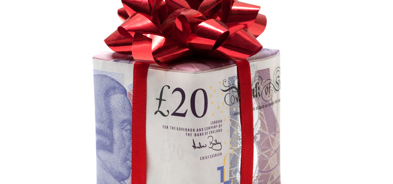7 financial considerations if you're going through a divorce
Divorce is an emotionally charged time and it can be difficult to keep track of everything, especially when it comes to money. Here are 7 financial considerations that you can use as your 7-point financial checklist during divorce to help clarify the decisions that need to be made.
The value of investments can fall as well as rise and that you may not get back the amount you originally invested.
Nothing in these briefings is intended to constitute advice or a recommendation and you should not take any investment decision based on their content.
Any opinions expressed may change or have already changed.
Published on 16 Jan 20247 minute read

Untangling finances during divorce is hard. Often, decisions are made at an emotional time and the realities of these decisions don’t become apparent until later. Our checklist for finances during divorce can help clarify the financial decisions to be made during this delicate period of transition.
1. Protect the financial wellbeing of your children
Children are usually the main priority in a divorce. When making a financial settlement, the couple’s decisions should always prioritise the wellbeing of their littlest ones. Here’s what you can consider to protect your children’s interests:
-
Financial support, either for their upbringing or for a specific area, like school fees. In some cases you may need to set up a trust
-
Protection against serious illness and death. So, for example, if one parent is funding maintenance, there could be a need to protect their income in case that person dies or becomes ill. Without protection, the surviving parent could face a big, unnecessary risk that could potentially compromise a child’s quality of life
2. Decide if you will keep your marital home
The marital home is often a sore subject when it comes to splitting up. It’s very common to have a strong sentimental bond with it, and the question gets even more challenging when children are involved.
The first instinct is usually to keep the home. But for some there’s not much more to gain from it than the memories that come with the house. And in some cases, paying the mortgage and household bills alone could be financially disadvantageous. In that case it could make more financial sense to sell the property and buy something else that is more affordable – and reduce your personal and financial stress.
3. Choose how to deal with pensions
There are three main ways to deal with pensions on divorce:
- Pension sharing orders
A pension sharing order provides a clean break. Any pensions will be split between the couple who are divorcing: you are given a share of your ex’s pension or vice versa and you can decide what to do with it. This share is called a ‘pension credit’ and it’s usually a percentage of the transfer value of the pension (although in Scotland it can also be stated as an amount). A pension credit can then be transferred into a new or existing pension scheme.
- Pensions offsetting
With pension offsetting, the value of a pension is offset against other valuable items during divorce. For instance, if your ex has a substantial pension, pension offsetting could allow them to keep this while you retain the marital home.
Pension offsetting also creates a clean break, but there are challenges: it’s not easy to split assets fairly and one party could end up with no pension on retirement. It is a good idea to seek expert help from a financial planner if you can.
Remember at Bestinvest you can talk to a financial planner for no charge, and no ongoing commitment.
- Pension attachment (or pension earmarking)
With pension attachment or earmarking, divorcing couples don’t get a clean break. The court instructs the pension or scheme provider to make payments so that part or all of the benefits from a pension go to the ex-partner when the pension pays out. Pension earmarking is available in Scotland but has been replaced by pension attachment in England, Wales and Northern Ireland.
4. Examine the tax consequences of splitting savings and investments
You might have started saving or investing before getting married or it could have become something you did as a couple after the wedding. Depending on where you live, this distinction could change how savings and investments are included in a divorce settlement. In Scotland, it is usually only the savings and investments built up during a marriage that are considered when couples get divorced whereas the courts in England, Wales and Northern Ireland generally take all of them into account.
Although it may sound more straightforward compared to pensions, dividing savings and investments requires careful thought since there are different tax consequences as well as charges to consider.
ISAs
ISAs can only be held in one person’s name so if you are dividing them on divorce they will lose their tax benefits. ISA transfers can only be made to the same person or a partner in the event of death, but not divorce. You should always remember that tax rates and reliefs depend on individual circumstances and are subject to change. ISA rules can also change.
Other tax-efficient investments
Other tax-efficient investments such as offshore bonds, Venture Capital Trusts (VCTs) and the Enterprise Investment Scheme (EIS) are a complex area of financial planning and during a divorce they can become even more so. Like ISAs, the tax benefits of VCTs are attached to one person. If this ownership is transferred, it gets very complicated.
It is possible to claw back income tax relief on the EIS if it is transferred to an ex. However, you must do this within the first three years of making the investment, regardless of whether or not the transfer is made during the same year of the separation.
This is a very complex area and higher risk investments such as VCTs and EIS are only considered suitable for very experienced investors so if they do form part of a divorce settlement, we would always suggest seeking financial advice. You should also always remember that tax rates and reliefs depend on individual circumstances and are subject to change.
5. Be careful about your options if you're a business owner
When owning a business and going through a divorce, there are a few things you should watch out for. Your business is usually considered an asset; it will be taken into account by the court when dividing them unless there is legal paperwork to show otherwise. It doesn’t really matter if your ex was involved with the business – they could still get a share of it on divorce.
During a divorce, the courts usually do their best to avoid disrupting a business. Often the most practical solution is that one party buys out the other but hitches can happen such as dividing up or selling the business. Let’s not beat around the bush: the financial consequences of this are serious and it can be emotionally overwhelming having to deal with two breakups at the same time. Getting some help from a financial adviser could be a good idea in this situation.
6. Consider how your decisions impact the amount of tax you pay
As this checklist shows, during divorce you need to agree with your ex how your assets – your home, money, pensions – will be split. This needs to be done in a way that meets both of your needs and makes sense financially.
But it’s also important to consider your tax position – the amount of income tax and capital gains tax you’ll need to pay – and make sure your decisions have as little impact on this as possible. When you get divorced, something called a ‘spousal exemption’ applies for a while, and if your divorce settlement happens outside this period, it can have a big impact on tax.
7. Take control of your financial future after divorce
The new life you’re about to start is stepping out into the unknown. It’s okay. There are going to be bumps in the road, but you could also discover new aspects of your personality that you had never imagined before. Life changes are a good opportunity to set financial goals that reflect your new way of living.
Go deeper – understand more about how a Bestinvest Coach can help you and what you can expect from a coaching call
How Bestinvest can help
In some cases, having a professional by your side who helps you to make the right decisions from the very beginning can be life-changing. Also, it may be the case that after the divorce you receive a financial settlement. If you’re interested in investing this money, a Bestinvest investment Coach can help you decide the best option and continue to review the investment to make sure that it’s performing as it should for you, whether this is producing an income or growing. But remember, the value or an investment can go up and down and you may not get back the amount invested.
Planning your life after divorce has its challenges. It's important to understand that your plans are not set in stone, and they could change along with your own life prospects. This is where the true value of an ongoing relationship with a financial planner can help. But, just as importantly, go easy on yourself. You’ll get there.
Book your coaching
Get insights and events via email
Receive the latest updates straight to your inbox.
You may also like…


Financial planning
Maximise your capital gains tax exemption before the end of the tax year

Financial planning



